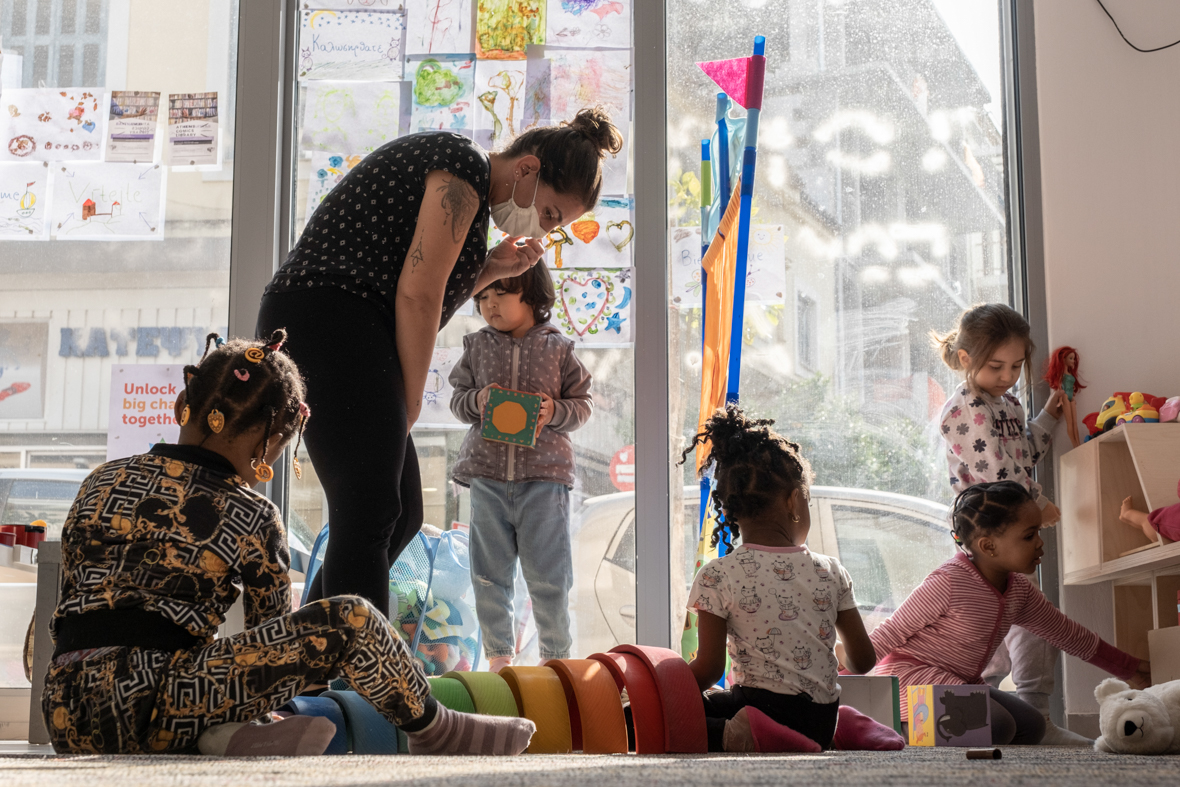
How children, families and countries can play their way to happiness and success
Childcare, Early childhood development, Safe pregnancy and birth
The importance of play as part of a young child's development is being increasingly recognised as a crucial long-term investment for them and their communities.
Two-year-old Finn plays happily with his pirate ship, just feet from where his mother Claire is sitting. He’s in his own little world, chatting with the pirates.
Occasionally he looks round to check his mother is still there. But he’s happy to play his own game for a couple of minutes before he looks to engage with her again. He picks up a scribble pad and hands it to her.
“Interacting and playing with children is so important to all of us,” says mother-of-two Claire MacFarlane, a learning and development specialist. “It’s critical for your child’s development and brings out your own creativity too.
“Once they know what to do, they like to have little times where they are making up their own games – just as Finn has done there.”
Claire, 42, from Perthshire in Scotland, believes that learning begins in the womb. She says: “It starts long before they actually arrive. I sang and talked to my children before they were born – thinking happy thoughts and having a positive mindset.
“You don’t need money to play with your kids – time and attention is everything, especially when they are very little. To give them eye contact and smiles and fun is so important for them and vital for their learning.
“By talking to them, they learn language structure and vocabulary. And by playing with them, they learn how to be resilient, to try new things, to interact and explore.”
Play has never been more important than right now. In fact, it’s now accepted as so crucial to a child’s development that the right to play has even become government policy in Wales – the first country to take this step.
Other countries around the world are waking up to the realisation that if you get the first 1000 days of a child’s life right, not only will the child benefit but so too will the community. The nation and the economy will reap the rewards for years to come.
A young child’s brain is 90% developed by the time they reach five – so it’s essential that they are properly supported, interacted with and cared for in these tender years.
Theirworld’s #5for5 campaign has been spotlighting the crucial role of play, protection, health, nutrition and learning in children under five.
Playing together also makes families happier, closer and less stressed, according to a new report by the LEGO Group. But over a third of families admit they struggle to prioritise playtime due to hectic daily schedules of both parents and children.
The Play Well Report by The LEGO Foundation surveyed nearly 13,000 parents and children in nine countries to understand the state of play today and encourage discussion around its ongoing importance.
Family expert and author Jessica Joelle Alexander – who contributed to the report – says: “Playing together is a fundamental cornerstone of family life for children and parents alike.
“But with modern lifestyles busier than ever and so much emphasis on formal education and structured activities, it can be easy to forget to make time for it.
“Given the positive effects it has on our wellbeing and happiness levels, family play should be the most important ‘homework’ of all.”
Catherine Parrott, an early child educator for 35 years and former head teacher of a nursery school in the UK, says “play is learning”.

She explains: “It’s always been important, especially for young children. It is the foundation for later life.
“They learn skills, boundaries, how to be safe, how to interact with others, how to explore and try things. Even when there is poverty, you can still find ways to play.
“If play has not been introduced, we find that many children struggle with boundaries and other kinds of learning.
“Learning starts right away – even pre-birth. Mothers can sing and talk to their unborn babies. And any kind of stimulation like talking and reading to your young baby is great.
“I think children of five and under should be allowed to learn more by playing in a safe, secure and more structured play environment and not be exposed to formal styles of learning till later.”
Children’s right to play has been enshrined in the UN Convention on the Rights of the Child since 1990.
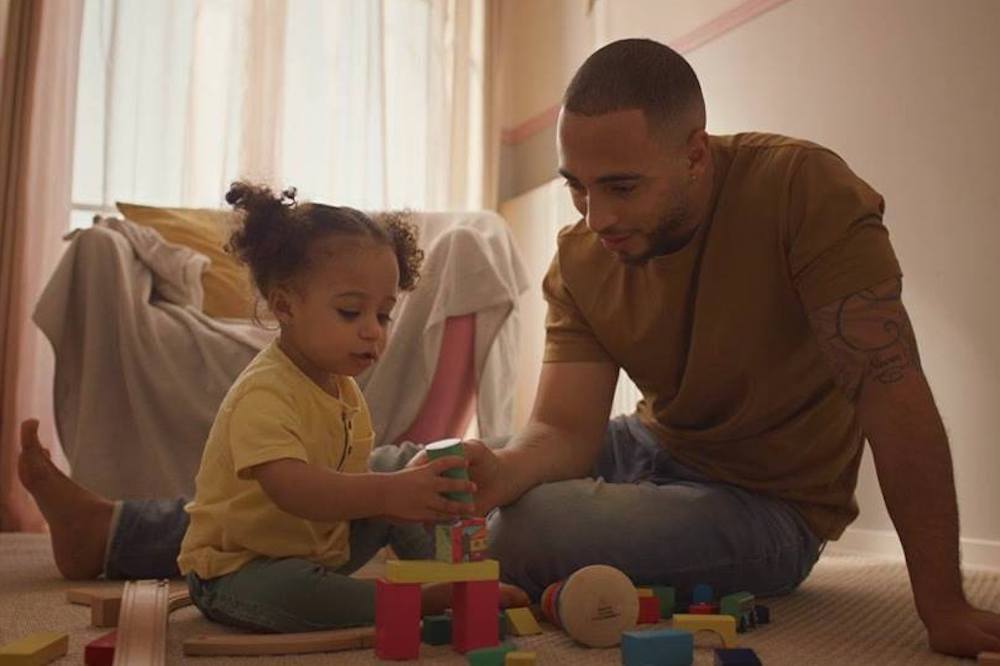
It seems politicians are catching up too. The Welsh Government now has play high up its agenda and Minister for Children Huw Irranca-Davies spoke to Their News about the move.
“Wales was the first country to legislate on play,” he said. “Wales – A Play Friendly Country is statutory guidance to local authorities in assessing for, and securing sufficient, play opportunities for children in their areas.
“The Foundation Phase – which is the statutory curriculum for all three to seven-year-olds in Wales – recognises that children learn through first-hand experiential activities with the serious business of play providing the vehicle.
“Through their play, children practise and consolidate their learning, play with ideas, experiment, take risks, solve problems, and make decisions individually, in small and in large groups.
“First-hand experiences allow children to develop an understanding of themselves and the world in which they live. The development of children’s self-image and feelings of self-worth and self-esteem are at the core.”
The Welsh Government has provided funding to Play Wales, the national charity for children’s play, to develop the Playful Childhoods campaign.
Parents should allow their children plenty of opportunities to play at home, with friends and in the community. Huw Irranca-Davies, Welsh Minister for Children
Central to the campaign is an informative, supportive and accessible website aimed at non-professionals (parents, carers and community groups) that brings together practical advice and guidance.
Irranca-Davies said: “It’s true that societal changes such as parental attitudes to allowing children to play outside compared to the past, increased traffic, the growth in modern technology such as mobile phones and computers means a risk that there’s less focus on play for children.
“That is why it is important that everyone understands the importance of play in children’s lives. Parents should allow their children plenty of opportunities to play at home, with friends and in the community.”
Play at home is highlighted in LEGO’S Play Well Report. It showed that 88% of families who play for five hours or more a week say they are happy, falling to 75% for those who play for less than five hours.
But play time is being squeezed – with 30% of families spending fewer than five hours playing together every week. 10% play for fewer than two hours.
Even when families do get together to play, 61% of parents admit they tend to get distracted by life’s other demands, such as work, house chores and their ever-present smartphones.
Alarmingly, 17% of children say their parents are too busy for play and 81% wish their parents would play with them more.
“Play is disappearing,” says Kathy Hirsh-Pasek, a developmental psychologist who is a professor at Temple University and a senior fellow at the Brookings Institute.
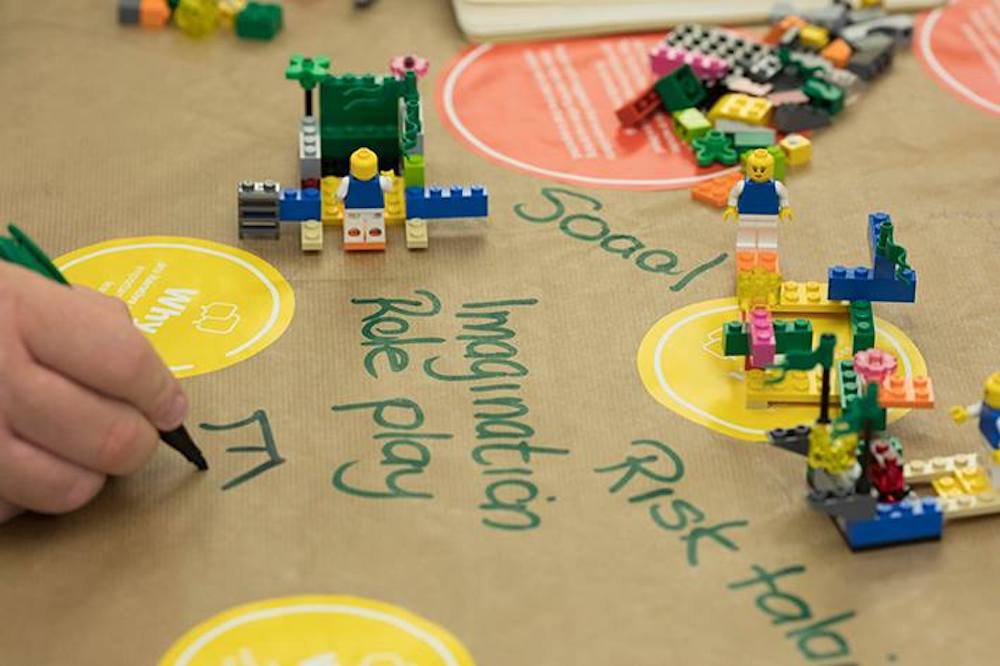
She is the co-author of a report published this month titled The Power of Play: A Pediatric Role in Enhancing Development in Young Children.
It says that play “supports the formation of the safe, stable, and nurturing relationships with all caregivers that children need to thrive”. The report adds that play is “fundamentally important for learning 21st-century skills, such as problem-solving, collaboration, and creativity, which require the executive functioning skills that are critical for adult success”.
By targeting doctors, explains Hirsh-Pasek, the report hopes to build on the success of a literacy initiative called Reach Out and Read – a programme that reaches nearly five million children annually by giving out children’s books at doctor visits.
“You have an opportunity there,” to change behaviour, she says.
The encouraging news is that most parents understand the need for play. The LEGO report shows 95% believe play is essential for children’s wellbeing and a vital educational tool.
Parents also rank playful learning (76%) as the number one educational technique, over reading books (67%), classroom teaching (55%), interacting with friends (65%) and way ahead of surfing the internet (22%).
“While many parents feel their children’s preference for digital play is getting in the way of what they see as better, typically more traditional activities, the truth is the two don’t have to be mutually exclusive,” said Dr Elena Hoicka, Senior Lecturer in Psychology in Education at the University of Bristol, who also contributed to the LEGO report.
“More than previous generations, kids today see the digital and real worlds as part of one big, interconnected play space. To make the most of their time playing together, parents need to adopt this fluid mindset too.”
Theirworld’s work on early childhood development is supported by the Conrad N. Hilton Foundation.
From the LEGO Play Well report
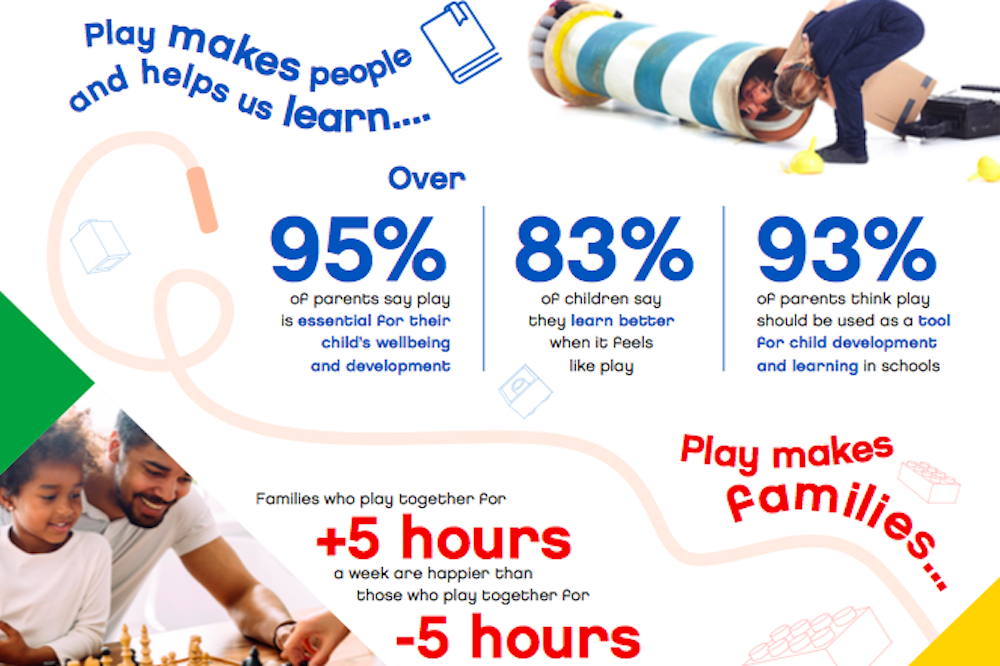
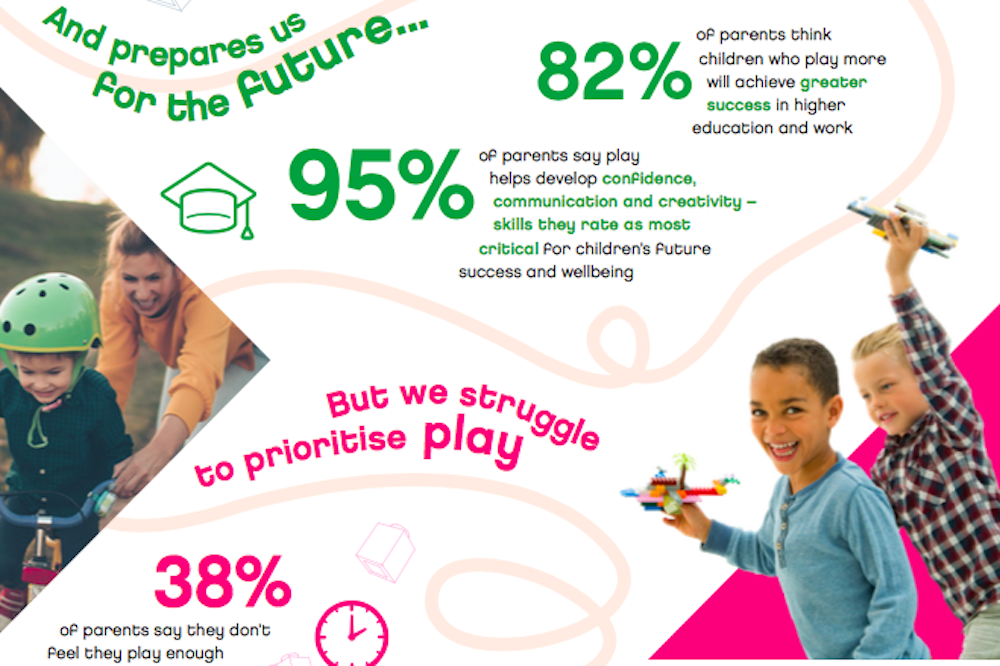
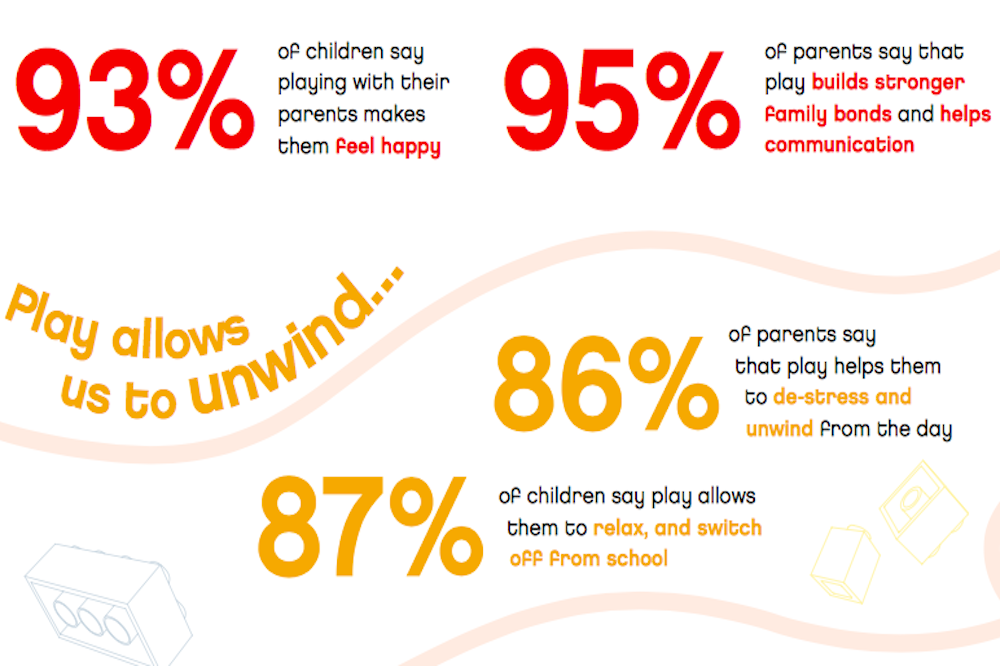
More news

MyBestStart programme gives young girls the education they deserve
